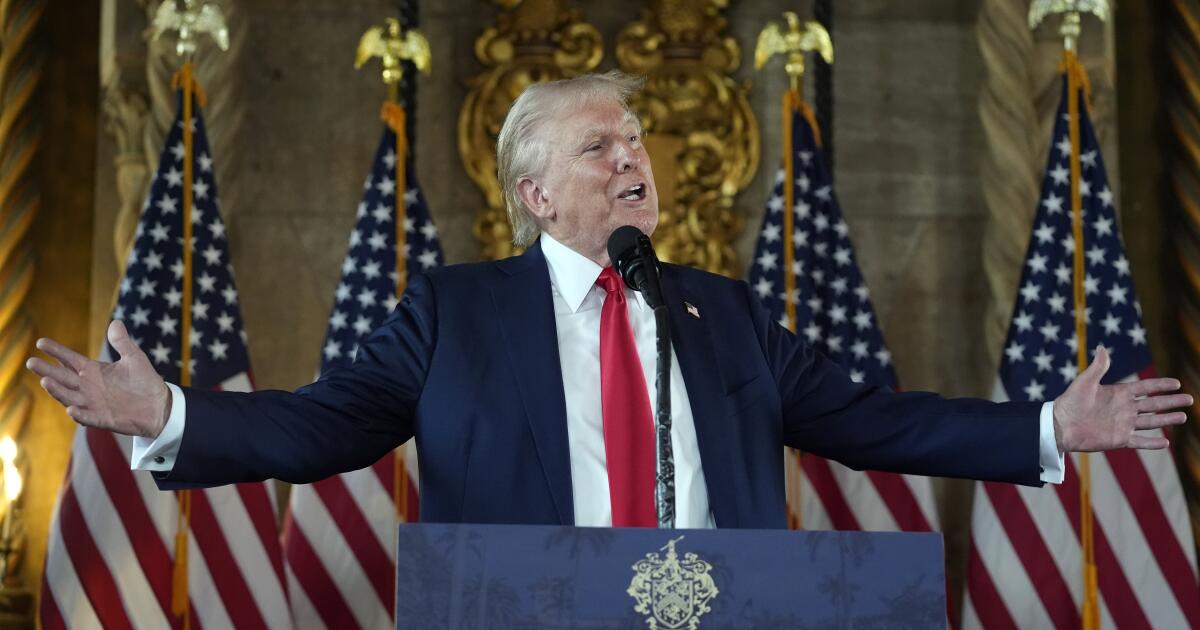Vice President Kamala Harris’s campaign plans to shift its economic message this week from breadth to depth, articulating some of the policies we might expect from a Harris administration. We’ve already gotten a sneak peek: Stops in Philadelphia and Detroit not only featured Gov. Tim Walz as her running mate, but also reiterated Harris’ commitment to popular progressive issues like paid family leave.
Now it's time to explain some of the details, such as how the administration would get its plans through Congress and how its policies would be funded.
Opinion columnist
Granderson Landing Station
LZ Granderson writes about culture, politics, sports, and navigating life in America.
Running a country isn't cheap. That's why it's been nearly a century since a president reduced the national debt. Calvin CoolidgeSaving the middle class would be even more expensive than continuing with business as usual. History has shown us that: by pushing through the New Deal, Franklin D. Roosevelt increased the national debt by more than 1,000%.
Even preventing disaster can be costly, let alone aiming for progress. As former President Trump and President Biden attempted to guide the country through the pandemic and the historic global inflation that followed, the United States had a debt-to-GDP ratio of nearly 140% in the final quarter of 2021. And yet we remain the strongest economy in the world.
One thing is certain: the next Democratic president will have ambitious and expensive plans.
Here's another: No matter what Harris says, conservatives will find fault with it.
Not surprising, of course, when you consider that they prefer austerity for the needy and abundance for the rich. While those with plenty enjoyed record profits and traveled to space, the poor were forced to fend for themselves by working several jobs or on picket lines.
It is no surprise that the central economic message of Harris’s campaign so far — getting ahead rather than just surviving — has been so well received. But the honeymoon phase will soon be over.
The success or failure of the idea of a Harris administration will depend on what the vice president says about the economy. She needs a message that does not reject the current administration and she must also present a vision for the future that is different from Biden's, a vision that she and Walz will represent.
Senators like Bernie Sanders and Elizabeth Warren have long talked about making the ultra-wealthy and big corporations pay their fair share. The problem is that, without a significant majority in Congress to provide the votes, that's just lip service.
To accomplish accomplishments like the Infrastructure Investment and Jobs Act, Biden was able to lean on the relationships and experience he built over his 36 years in the Senate. Having served only four years in that chamber, Harris obviously doesn’t have the same resources to draw on. Indeed, in the moments after Biden announced he was no longer seeking reelection, some Democrats in Congress pushed for an open convention to choose a nominee. That push was short-lived, but it underscores that Harris’s relationship with the body is more complex than Biden’s.
Some members of Harris’s party may be slow to use their political capital to push controversial policies. Biden has encountered this himself, despite those decades-long friendships. Some of his more progressive policies, such as investing in people as part of the infrastructure bill, were derailed by Democrats in more moderate parts of the country.
Congress can block a president from fulfilling key campaign promises. The infrastructure bill made it to the finish line, but the John Lewis Voting Rights Act did not. Harris knows all too well how difficult it can be to get senators to support the administration (think Joe Manchin and Kyrsten Sinema). As vice president, she has been required to They cast decisive votes in the Senate 33 timesmore often than any other vice president in history.
Harris has spent the past three weeks throwing red meat at a base that desperately needs sustenance. She has money and the full attention of her opponent, who is so shaken that this weekend he claimed that an artificial intelligence had generated the images of 15,000 people flocking to support Harris in Detroit.
The images were not faked.
The enthusiasm is real.
I was there, as were several union members who bristled whenever Harris talked about helping the middle class. Expensive initiatives, like affordable child care, were especially popular. They always are. Getting the votes, paying for it — those are the reasons they haven’t passed.
Can Harris get the congressional support she needs to enact the progressive policies she promises? The answer to that question begins and ends with how she intends to cover the costs.











